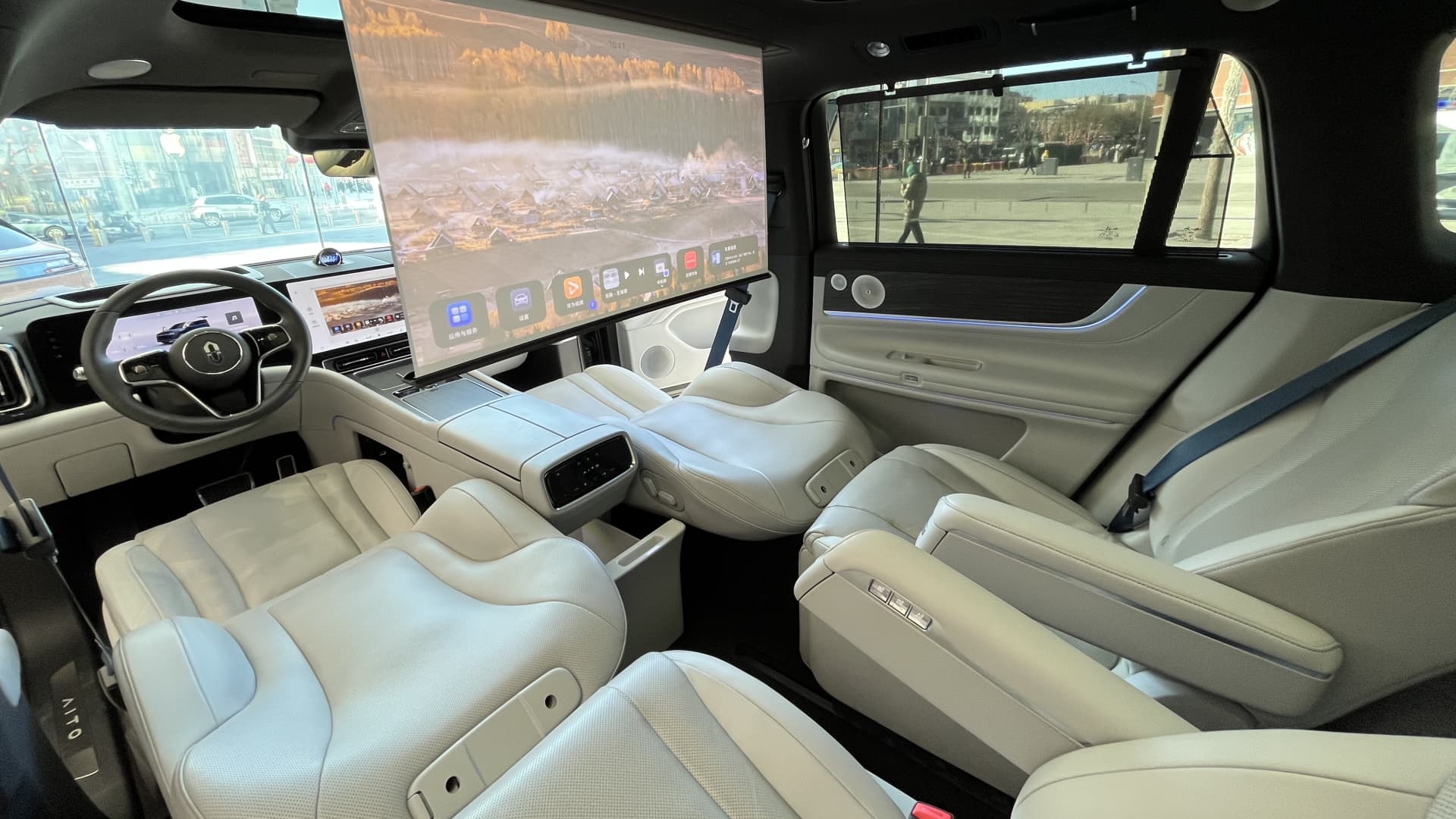The Chinese electric vehicle (EV) market is not only shaped by the competitiveness of driving range but also by the race to equip vehicles with sophisticated technological features. Local automakers are introducing models that challenge Tesla, surpassing the American company with advanced in-car technology and, at times, more competitive pricing.
Elevating the In-Vehicle Entertainment Experience
The Aito M9 SUV stands out by allowing the adjustment of its front seats to create reclining chairs for the second row. Passengers can indulge in the luxury of a roll-down projector screen to watch movies while accessing a refrigerator compartment—a feature absent in
Tesla‘s current lineup in China. This infusion of entertainment and convenience represents a shift in the perception of
electric vehicles in China. As Li Yi, the chairman and CEO of Appotronics, asserts, EVs are increasingly viewed as consumer electronics, resembling the dynamics of the cellphone industry.
Technology as the Core Selling Point
In China, the emphasis stands on offering the most advanced tech specs, resulting in the proliferation of in-vehicle gadgets and features. This trend is observed in the M9 SUV’s 32-inch projection screen, developed by Appotronics for Huawei’s Aito brand, with orders exceeding 30,000 vehicles as of January 1. The allure of such cutting-edge technology is further heightened with other competitors like Li Auto’s L9 SUV and Xpeng’s G9 SUV, each integrating AR HUD, refrigerators, and driver-assist tech into their offerings.
The impending launch of over 100 new EV models in 2024 in China demonstrates the industry’s commitment to exceeding consumer expectations with each subsequent release. Yiming Wang, an analyst at China Renaissance Securities, highlights the consumer focus on advanced in-vehicle tech features and driver-assist capabilities, surpassing the precedents set by traditional gasoline-powered vehicles or earlier
electric cars.
The Business of Car Tech
The thrust towards car tech heralds a lucrative business segment, as Appotronics’ Li foresees generating revenue in the range of “a few hundred million” yuan, a significant leap from their previous annual revenue of about $300 million. This momentum underscores the willingness of Chinese customers to invest in premium car tech, signaling a distinct difference in approach when compared to American automakers, who are chiefly concentrated on cost reduction.
Evolving Dynamics in the EV Industry
Chinese companies have effectively dominated the supply chain for electric car batteries, contributing to the enviable success of BYD and further spotlighting the disruptions faced by traditional foreign auto giants. The industry narrative highlights the divergent philosophies between the German and Chinese automotive systems, with the former approaching car design from a mechanical, bottom-up standpoint, in contrast to the latter’s digital, top-down perspective.
The Drive for Driver-Assist
In the last year, driver-assist features have emerged as a competitive edge for electric cars in China, accentuated by the gradual expansion of permissible driver-assist functionalities by Chinese regulators. This includes Tesla’s Autopilot for highway driving but not its “Full Self Driving” feature for city streets, which remains unavailable in China. The nationwide endeavor to develop driver-assist and self-driving technologies via pilot programs signals a concerted effort to integrate such features into the fabric of the Chinese EV market.
However, the willingness of consumers to pay for specific advanced driver-assist features remains a point of consideration, with buying behavior often deviating from survey inclinations. This further underscores the importance of understanding consumer preferences and priorities to align product offerings with their actual needs and desires.
Conclusion
The competitive landscape of China’s electric
car market is rapidly evolving, with local automakers introducing cutting-edge technology that not only rivals but surpasses the offerings of established players like Tesla. The allure of advanced in-car technology and driver-assist functionalities has become a pivotal factor driving consumer interest and shaping the trajectory of the industry. As China solidifies its position as a dominant force in the electric vehicle market, it is poised to set new benchmarks for technological innovation and consumer-centric automotive design.


